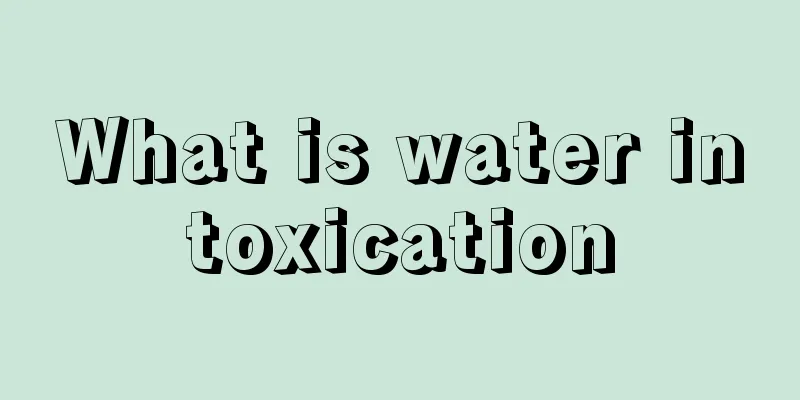What is water intoxication

|
Poisoning is a very common phenomenon. The cause of poisoning is improper diet. Many people don’t know what to do when poisoning occurs. If it is caused by drugs, they need to go to the hospital for treatment to improve the situation. If it is other phenomena, it is conducive to food poisoning. Some drugs need to be selected for improvement. If it is serious, gastric lavage is also required. So what is water poisoning? Many people don’t know much about water poisoning, and don’t know what to do when this happens. So what is water poisoning? Let’s explain it in detail below so that everyone can have a good understanding of this issue. What is water intoxication: Water intoxication is a poisoning symptom caused by dehydration and hyponatremia due to excessive water intake. Although the chances of death from water intoxication are very low, it is still possible. The maximum sustained diuresis rate of the human kidney is 16 ml per minute. Once the water intake rate exceeds this standard, the excess water will cause the cells to swell, causing dehydration and hyponatremia. When drinking too much water, the electrolytes in the blood drop below the safe water concentration because they are excreted from the body by the water, affecting the functioning of the brain and may be fatal. The specific reasons are as follows: 1. Drinking too much water or excessive intravenous glucose infusion (such as abuse of sodium-free fluids during hypotonic dehydration), especially in patients with poor heart and kidney function and infants with poor kidney dilution function of urine. In addition, after major surgery, the body is in a state of stress, the antidiuretic hormone secretion in the body is excessive, and the urine volume is reduced. At this time, if a large amount of fluid is infused, it may also cause water intoxication. For example, children with congenital megacolon, after washing their intestines with large amounts of clean water, a large amount of water is absorbed through the intestinal wall into the blood circulation, leading to water intoxication. 2. Malnutrition: Due to low plasma protein and low blood sodium, the osmotic pressure of the extracellular fluid is reduced, and water enters the intracellular fluid from the extracellular fluid, resulting in a decrease in effective circulation volume, promoting the secretion of antidiuretic hormone, reducing urine volume, and causing water retention. 3. Pneumonia, severe infection, shock and brain diseases: the secretion of antidiuretic hormone increases, causing water retention. 4. Acute renal failure, oliguria period, even normal intake can cause water intoxication. 5. Drowning in fresh water. 6. Mental factors: mental tension, severe pain and various acute stress states (such as major surgery, trauma, etc.). 7. Tumor. Through the above introduction, we have a good understanding of what water poisoning is. At the same time, the reasons for its occurrence are also introduced one by one. Therefore, we must pay attention to these issues. If you want to have a healthy body, you must make reasonable arrangements in your diet, and the daily amount of water intake must also be reasonable. |
<<: How to treat oily hair loss
Recommend
How long can you live with severe pain in the late stage of gastric cancer
Gastric cancer is a highly malignant digestive tr...
What are the early symptoms of lung cancer? These 4 symptoms are common in early lung cancer
Lung cancer is very common in daily life, but few...
The reason why buns crack
If you don't master the cooking techniques wh...
Explain the common symptoms of uterine cancer
Uterine cancer is a disease that many women in mo...
How to clean buckwheat pillow
I don’t know if you have ever eaten buckwheat. It...
How long can you sleep with contact lenses?
Some people say that wearing contact lenses is mo...
Self-treatment tips for rhinitis
With the rapid development of the economy, people...
What contains a lot of vitamin K?
Vitamins are essential substances for our body. I...
Do patients with nasopharyngeal cancer often have fever? Why do they get nasopharyngeal cancer?
Do patients with nasopharyngeal cancer often have...
Three ways to check for testicular cancer
Testicular cancer is a malignant tumor that serio...
Pesticide exposure may increase brain cancer risk
Isabelle from the University of Bordeaux II in Fr...
Do I need to wear underwear when I go to bed at night
When it comes to going to bed at night, many peop...
“Clues” need to be vigilant about cervical cancer
Since the symptoms of cervical precancerous lesio...
What are the serious dangers of brain cancer
What are the serious hazards of brain cancer? I b...
How to clean dentures
We all know that once the residue on teeth remain...









